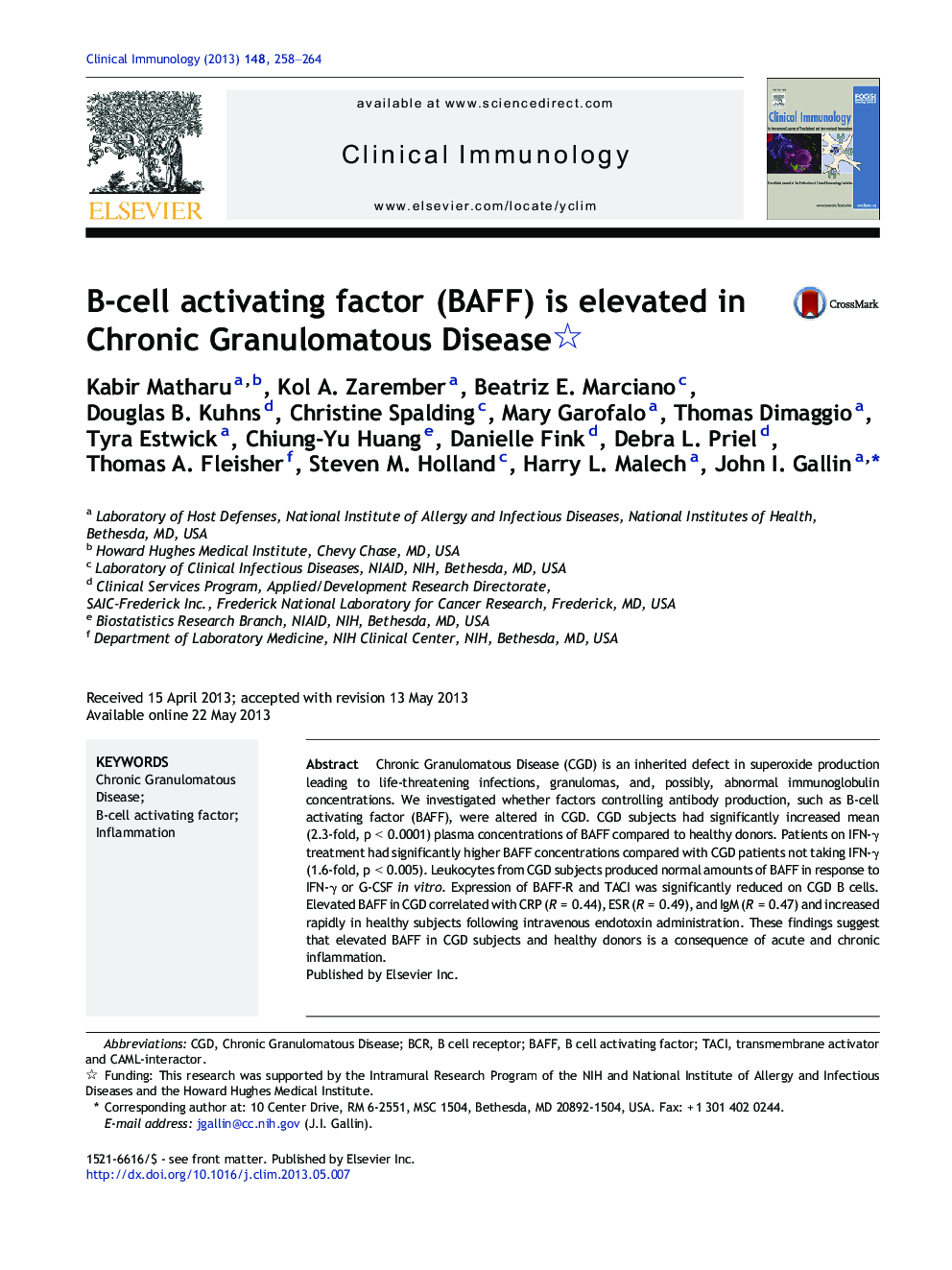| Article ID | Journal | Published Year | Pages | File Type |
|---|---|---|---|---|
| 6087714 | Clinical Immunology | 2013 | 7 Pages |
â¢Plasma BAFF is significantly increased in CGD patients.â¢Among CGD patients, plasma BAFF correlates with markers of acute inflammation.â¢BAFF levels are further elevated among CGD patients taking IFN-γ.â¢BAFF levels increase within 6 h in healthy donors given intravenous endotoxin.â¢BAFF may be a marker of poorly regulated inflammation in CGD.
Chronic Granulomatous Disease (CGD) is an inherited defect in superoxide production leading to life-threatening infections, granulomas, and, possibly, abnormal immunoglobulin concentrations. We investigated whether factors controlling antibody production, such as B-cell activating factor (BAFF), were altered in CGD. CGD subjects had significantly increased mean (2.3-fold, p < 0.0001) plasma concentrations of BAFF compared to healthy donors. Patients on IFN-γ treatment had significantly higher BAFF concentrations compared with CGD patients not taking IFN-γ (1.6-fold, p < 0.005). Leukocytes from CGD subjects produced normal amounts of BAFF in response to IFN-γ or G-CSF in vitro. Expression of BAFF-R and TACI was significantly reduced on CGD B cells. Elevated BAFF in CGD correlated with CRP (R = 0.44), ESR (R = 0.49), and IgM (R = 0.47) and increased rapidly in healthy subjects following intravenous endotoxin administration. These findings suggest that elevated BAFF in CGD subjects and healthy donors is a consequence of acute and chronic inflammation.
